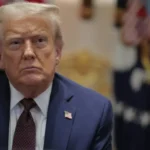Jamaica’s ruling party, the Jamaica Labour Party (JLP), enters the final stretch before the September 3 general election facing a challenge that history rarely grants — securing a third consecutive term. The path forward is less about basking in past victories and more about convincing a skeptical electorate that continuity outweighs change.
Chairman Robert Montague acknowledged the gravity of the moment, noting that longevity in power cannot be taken for granted. His message reflects the reality that voter patience is limited, and political capital erodes faster than it is gained.
Unlike campaigns fueled by spectacle, the JLP’s machinery is grinding in disciplined silence. Field workers distribute voter guides, constituencies are canvassed with precision, and local meetings replace large-scale theatrics. The strategy appears less concerned with winning headlines and more with safeguarding turnout in critical battlegrounds.
Still, the calculus is unforgiving. In 2020, the party’s sweeping two-thirds majority looked like a political fortress. Four years later, that advantage has hardened into expectation — and expectation breeds risk. Montague has avoided bold predictions, only admitting that a simple majority of 34 seats is sufficient to govern, though the pursuit of all 63 remains the official line.
Elections are rarely decided by noise, but by timing. The JLP is betting on a steady climb rather than an early surge, knowing that in politics, peaking too soon can be fatal. Whether this measured approach secures another term or exposes fatigue in the electorate will be revealed in a matter of days.
What is clear is that the JLP is not merely campaigning — it is fighting for political survival in a contest that could redefine Jamaica’s balance of power.






